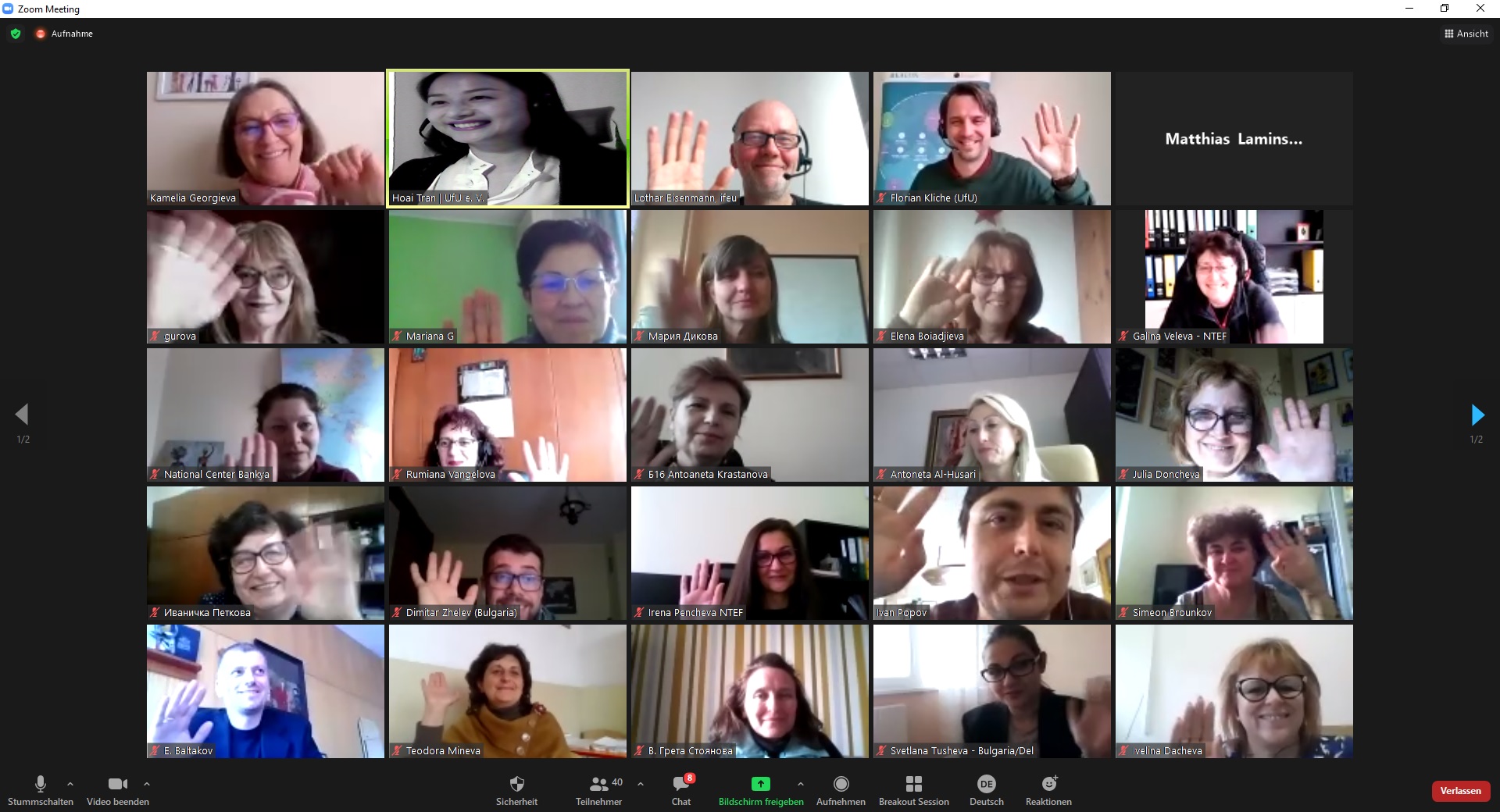BEACON study visits going virtual

The idea of the study visits
As one highlight of the BEACON project, two study visits were planned, during which representatives of the partner countries Bulgaria, the Czech Republic and Romania were invited to Germany. A three-day program was planned for 15 education sector multipliers per study visit, such as instructors in teacher trainings, representatives from school authorities and school administrations. The program included visits to schools and educational institutions that carry out energy-saving projects as well as energy-saving laboratories and other environmental educational institutions. The aim of the study visits was to link the actors with one another and use the program impulses to discover commonalities for their work in the field of climate protection.
The first study visit with all three countries took place as planned in autumn 2019. Participants were invited to Berlin, where they were able to visit various schools and to hold expert talks to learn about energy-saving projects on-site. Excursions to energy laboratories and discussions with climate protection managers and the Senate Administration were also on the program and were able to provide important impulses.
Further Information
The switch to digital inputs
The second study visit was planned for the first half of 2020 but postponed on multiple occasions due to the COVID-19-pandemic. Over the course of 2020 it became clear that international trips could not take place during the project period and that an alternative format had to be developed. However, for these study visits the networking character and direct exchange is essential and cannot easily be converted to a digital format. The new main idea of UfU, the implementing organisation, was to provide multipliers in the partner countries with some informative and illustrative best practice examples for local climate protection. The results were two 15-minute videos for which we worked with a professional film team:
In the film “Wind, Venture, Involvement” (see video below), the energy self-sufficient village Feldheim is presented, which we would have liked to visit with the study visit participants. It is the first and so far only place in Germany that completely generates electricity and heat for its own use and is thus playing a pioneering role in the energy transition. Barbara Ral, Climate Protection Manager of Potsdam-Mittelmark, and Michael Knape, Mayor of Treuenbrietzen, report in the film how the interaction of favourable basic conditions, the courage of individuals to try something new, and the broad involvement of citizens, contributed to the success of such a pilot project. They also explain what steps were necessary to take and what obstacles had to be overcome.
If desired, you can enable English subtitles in the navigation bar of the video.
For the film “Networked-Active-Sustainable” (see video below), Karola Braun-Wanke and Judith Hübner from the Environmental Coordination Office of the Berlin district of Steglitz-Zehlendorf were interviewed. In the Botanical Garden in Berlin they report on how the Coordination Office was developed, what goals it’s pursuing, what their work looks like in practice, and what role networking plays in it. They also provide information about their educational mandate and the environmental model pursued by the city of Berlin. The establishment of the Berlin Environmental Coordination Offices was preceded by an assessment of environmental education offers in the Berlin districts, in which UfU was involved. After the screening of the film, UfU’s management explained the development process of the Coordination Offices to the study tour participants.
If desired, you can enable English subtitles in the navigation bar of the video.
Another presentation was given by UfU about the National Climate Initiative of the Federal Environment Ministry (NKI) at request of the Bulgarian partners. In cooperation with Lothar Eisenmann from ifeu (Institute for Energy and Environmental Research Heidelberg), the NKI was presented as an example of funding opportunities for sustainable educational projects and other climate protection activities in German municipalities and schools.
The study visits were primarily organised by the local BEACON partners, SNRB, NTEF and SEVEn, and inputs from UfU were integrated into the program. In the Czech Republic and Bulgaria, the study visits took place as online workshops and UfU’s input presentations were followed by lively discussions and interested inquiries. Fortunately, the Romanian study visit was able to be carried out as a hybrid event in mid-April, as the majority of the participants were already vaccinated and local conditions allowed for it. The education sector multipliers met in Romania on site, visited various educational institutions in the area, and listened to virtual presentations by UfU.
